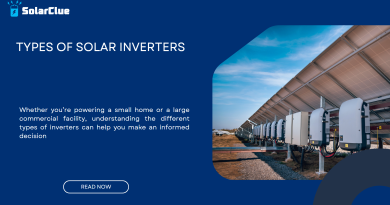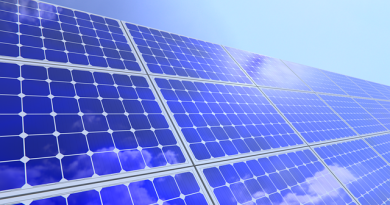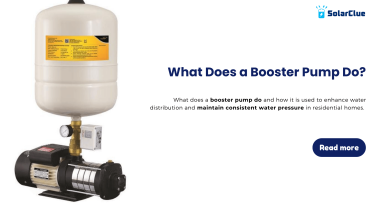Are Solar Panels Waterproof?
Solar panels are designed to withstand various environmental conditions, including exposure to water. Understanding the waterproof capabilities of solar panels is crucial for ensuring their efficiency and longevity, especially in regions prone to heavy rainfall or snow. This blog post delves into the construction of solar panels, their water resistance, and the best practices for maintaining them in wet environments.
Table of Contents
- 1 The Construction of Solar Panels and Their Water Resistance
- 2 The Impact of Water Exposure on Solar Panel Efficiency
- 3 Cleaning and Maintenance Practices for Wet Environments
- 4 Solar Panel Warranties and Coverage for Water Damage
- 5 Comparing Different Solar Panel Types for Water Resistance
- 6 The Role of Proper Installation in Ensuring Waterproofness
- 7 The Future of Solar Panel Technology and Its Resistance to Water
- 8 Common Misconceptions About Solar Panel Waterproofing
- 9 Case Studies of Solar Panels in Extreme Weather Conditions
- 10 Tips for Protecting Solar Panels from Water Damage
- 11 Conclusion
- 12 FAQs
The Construction of Solar Panels and Their Water Resistance
1. Solar Panel Layers:
- Tempered Glass: The top layer of a solar panel is typically made of tempered glass, which is both durable and resistant to impact. This layer protects the photovoltaic cells underneath from water, dust, and debris.
- Photovoltaic Cells: Beneath the glass are the photovoltaic cells, usually made from silicon, that convert sunlight into electricity. These cells are delicate and require protection from moisture.
- Encapsulation Material: Encapsulants, such as ethylene-vinyl acetate (EVA), surround the cells to seal and protect them from water and physical damage.
- Backsheet: The back layer of the panel, known as the backsheet, is typically made of a polymer material that provides additional protection against water and environmental factors.
- Aluminum Frame: The edges of the solar panel are sealed with an aluminum frame, which adds structural support and further prevents water ingress.
2. Protective Coatings:
- Solar panels are often treated with hydrophobic coatings that repel water, ensuring that water beads up and rolls off the surface instead of pooling or penetrating the panel.
The Impact of Water Exposure on Solar Panel Efficiency
1. Water Exposure and Efficiency:
- Short-Term Effects: Water on the surface of solar panels can temporarily reduce efficiency by blocking sunlight from reaching the photovoltaic cells. However, this reduction is typically minimal and short-lived, especially if the water evaporates or runs off quickly.
- Long-Term Effects: Prolonged water exposure, especially if water penetrates the panel due to damage or poor installation, can lead to electrical faults, corrosion, or delamination of the encapsulation materials. This can significantly reduce the panel’s efficiency and lifespan.
2. Moisture and Electrical Components:
- Potential for Corrosion: Moisture ingress can cause corrosion of the internal electrical connections, leading to reduced performance or complete failure of the panel.
- Bypass Diodes and Junction Box: The junction box and bypass diodes are critical components of the solar panel system that are particularly vulnerable to water damage if not properly sealed.
Cleaning and Maintenance Practices for Wet Environments
1. Regular Cleaning:
- Rain as a Natural Cleaner: In many cases, rainwater helps clean the surface of solar panels by washing away dirt and debris. However, in areas with high pollution or pollen, additional cleaning may be necessary.
- Manual Cleaning: Use a soft brush or sponge with water and mild soap to clean the panels. Avoid using abrasive materials or high-pressure water, as these can damage the glass or seals.
2. Inspecting for Damage:
- Regular Inspections: After heavy rain or storms, inspect the panels for cracks, chips, or other damage that could allow water ingress.
- Seal Integrity: Check the integrity of the seals around the edges of the panels and the junction box to ensure they are watertight.
3. Maintenance Tips:
- Tilt Angle: Ensure that the panels are installed at an angle that allows water to run off easily, preventing pooling.
- Gutter Systems: Consider installing gutters or drainage systems around the panels to direct water away from them.
Solar Panel Warranties and Coverage for Water Damage
1. Warranty Coverage:
- Most solar panel manufacturers offer warranties that cover defects in materials and workmanship, which typically include protection against water ingress under normal environmental conditions.
2. Understanding the Terms:
- Water Damage Exclusions: Some warranties may exclude damage caused by extreme weather conditions, such as flooding, hurricanes, or improper installation.
- Duration of Coverage: Warranties typically last between 10 and 25 years, with coverage for water-related damage often dependent on adhering to proper installation and maintenance practices.
Comparing Different Solar Panel Types for Water Resistance
1. Monocrystalline vs. Polycrystalline Panels:
- Both monocrystalline and polycrystalline panels offer similar levels of water resistance, as their construction and materials are generally the same. The difference lies more in efficiency and cost rather than water resistance.
2. Thin-Film Solar Panels:
- Thin-film panels are more flexible and can be applied to various surfaces. However, they may be more susceptible to water damage if not properly encapsulated or installed, as they often have fewer protective layers than crystalline panels.
The Role of Proper Installation in Ensuring Waterproofness
1. Professional Installation:
- Proper installation is crucial to ensuring that solar panels remain waterproof. Poorly installed panels may have gaps, loose seals, or improperly secured junction boxes, leading to water ingress.
2. Sealing and Weatherproofing:
- Ensure that all connections, including those in the junction box, are properly sealed with weatherproof materials. Use high-quality sealants around the edges and mounting points.
The Future of Solar Panel Technology and Its Resistance to Water
1. Advancements in Coatings:
- Future developments may include more advanced hydrophobic coatings that further enhance the water resistance of solar panels, potentially improving efficiency in wet conditions.
2. Improved Materials:
- New materials for encapsulation and backsheet layers could provide better protection against moisture, increasing the durability and lifespan of solar panels.
Common Misconceptions About Solar Panel Waterproofing
1. Myth: Solar Panels Are Not Waterproof:
- Fact: Solar panels are designed to be waterproof and are tested to withstand exposure to rain, snow, and humidity.
2. Myth: Water Always Damages Solar Panels:
- Fact: While water can reduce efficiency temporarily by blocking sunlight, well-constructed and properly installed solar panels are resistant to water damage.
Case Studies of Solar Panels in Extreme Weather Conditions
Case Study 1: Solar Panels in Coastal Areas
- Location: Coastal regions with high humidity and saltwater exposure.
- Outcome: Solar panels with high-quality seals and coatings have successfully operated for over a decade without significant degradation, even in harsh conditions.
Case Study 2: Solar Panels in Monsoon Regions
- Location: Regions with heavy rainfall, such as parts of India.
- Outcome: Panels installed with proper tilt and drainage systems continued to perform efficiently, with regular maintenance ensuring long-term durability.
Tips for Protecting Solar Panels from Water Damage
- Regular Inspections: Conduct regular visual inspections, especially after severe weather, to identify any potential issues with the seals or glass.
- Use Protective Coatings: Apply additional protective coatings to enhance water resistance if your panels are in an environment with excessive moisture.
- Ensure Proper Installation: Hire certified professionals to install your solar panels, ensuring that all components are securely fastened and sealed against water ingress.
- Consider a Backup: If your area is prone to severe weather, consider additional protective measures, such as installing a protective cover during extreme weather events.
Conclusion
Solar panels are engineered to be waterproof and are capable of withstanding various environmental challenges, including rain and snow. Proper installation, regular maintenance, and understanding the materials used in their construction are key to ensuring their long-term performance and durability. By following the best practices outlined in this guide, you can protect your solar investment and enjoy reliable, renewable energy for years to come.
FAQs
1. Are solar panels waterproof?
Yes, solar panels are designed to be waterproof and are built to withstand exposure to rain, snow, and humidity.
2. Can water damage my solar panels?
Water can temporarily reduce efficiency if it blocks sunlight, but well-installed and maintained panels are resistant to water damage. Long-term exposure to water due to poor sealing or installation can lead to damage.
3. How should I clean my solar panels in wet environments?
Clean your panels with water and a soft cloth or sponge. Avoid abrasive materials and high-pressure water that could damage the panels.
4. What should I do if I notice water inside my solar panels?
Contact a professional immediately to inspect and repair the panels. Water inside the panels indicates a breach in the sealing and could lead to significant damage.
5. Do solar panel warranties cover water damage?
Most warranties cover water damage under normal conditions, but it’s important to read the terms carefully to understand any exclusions or requirements.



